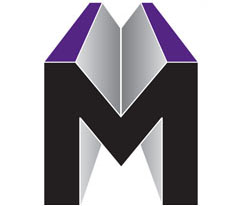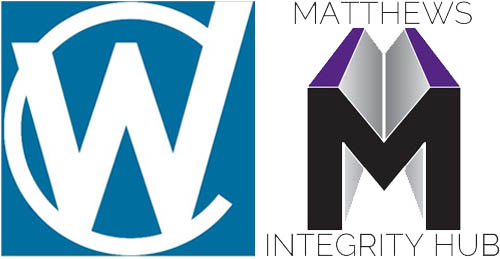Graduate Interviews
ANSWER THAT…. IF YOU CAN
If you look at our main Interview DESK webpage you will see articles there about technical interviews for specific jobs in the asset integrity industry. By definition, most of these will not be directly relevant to new-graduate positions. Interviewing graduates with no direct job-related experience is a different ball game, particularly difficult for the interviewer.
It’s more difficult for the interviewer
In most large companies, the task of interviewing candidates for entry to the graduate training scheme usually falls to someone who is, shall we say, not at the technical cutting-edge of the organisation’s activities. It’s more likely to be someone with a more administrative role from the training or personnel department, or whatever they call themselves. It can be different with small owner-managed companies, but they don’t run many graduate training schemes.
The result is that the interview normally centres on the well-worn ‘tell us about yourself’ or ‘what is your most significant achievement’ – type of interview questions. Let’s call these Puff Questions, for want of a better term. There’s no mystery about what most of these are; you can see them on numerous websites such as:
https://graduatelinks.co.uk/typical-graduate-interview-questions/
Puff questions are easy to answer
If you haven’t rehearsed some stock answers to Puff Questions then you probably don’t deserve the job. You can find the answers on the web in seconds; for example;
Puff Question: What is your greatest strength?
Puff Answer: I am particularly interested in [insert some skill here, linked to the job ad] I learned during my [name-drop some impressive-sounding qualification]. My work was [add some responsibility-centred power words such as effective or efficient] and I approached it as [choose some passion words] so this led to [finish off with a few leadership power words].
Get the idea? Here’s what it looks like in real time;
Suitably-puffed answer example: I am particularly interested in integrity evaluation of corroded structures. I learned the analysis methods during the corrosion module of my BEng course. My work was effective in categorising three sorts of defect and I was enthusiastic about finding others by co-ordinating with more experienced corrosion engineers.
You can apply the same idea to other questions such as ‘What motivates you? ’Give an example of a time when you showed initiative.’ ‘Why do you think you will be successful in this job?’ and similar puff stuff. There’s no need to be worried by puff questions; all you have to do is respond with suitably puffed answers.
More difficult technical questions
If your interviewer is a good technical person then they may prefer asking technical questions. These can be difficult and need a bit of thought. Here’s a good example; it’s worth thinking about how you, personally, would answer this question, before you look at the answer suggestions.
This week’s subject; METALLURGY KNOWLEDGE
Question: What did you learn about the metallurgy of steel during your degree course and how would you say it is linked to the integrity of pressure plant?
That’s a direct-enough technical question. Look at its two main characteristics:
- The second line mentions the integrity of pressure plant. You might think this is a bit unfair because you may not have covered pressure plant in any depth during your degree course. In reality it’s only there to see if you are easily put off from answering the question about metallurgy in the first line.
- The first line gives you amply scope to show your knowledge of metallurgy, if you have any.
This type of question is really good at testing your technical knowledge as it relates to plant integrity. Here’s some technical points from the metallurgy content of an engineering degree/MSc that can be put together to form the answer to a question like that above.
- The mechanical properties of tensile strength, yield strength, ductility and impact strength all have (interrelated) effects on the integrity of plain Carbon steels.
- These mechanical properties are heavily influenced by the amount of Carbon in the steel, as indicated by its Carbon Equivalent value. This also has an effect on how manufacturing and repair welding is performed.
- These mechanical properties of steel are central issue to plant integrity, being relevant to initial design, weld integrity, and resistance to cracking mechanisms such as embrittlement, fatigue and creep.
- Corrosion mechanisms that affect plain Carbon steels are influenced by the chemical analysis of the steel. Trace elements such as Chromium, Vanadium, Manganese and Molybdenum all have an effect.
- Some other metallurgical characteristics of plain carbon steels that can affect the integrity in use are softening, erosion, age hardening and stress corrosion cracking.
As an interview candidate, you need to be able to discuss 4-5 related points to demonstrate your knowledge of a subject. The points shown above are considered ‘general knowledge’ in the world of pressure plant integrity. You don’t have to get all the explanations perfect (unless you claim to have a metallurgy degree, when you should find them easy).
Always watch out for metallurgy questions at technical interview for asset integrity positions; it is a central theme of the whole subject.
Job-specific interview questions
As your career develops, you will find interviews becoming more specifically related to any job that you have applied for. Integrity/inspection jobs are not all the same; some require real technical skills and some do not. You can see typical interview questions for the following job roles on our Interview Desk webpage;
- Source (new construction) inspector
- Small plant (surveyor) inspection
- In-service inspection
- Integrity (fitness for purpose)evaluation
- NDT
We offer a TRIAL TECHNICAL INTERVIEW
If you want to check your knowledge for a specific job role in the integrity industry then try our trial technical interview. Its purpose is to test you on the technical aspects of the job you are thinking of applying for. There’s no time limit on it but expect it to last at least 20 minutes. After the discussion we’ll give you honest feedback on how you did. Just let us know the type of position you are going for; we’ll do the rest and respond with at time slot for you to call us.
There’s no charge, but we will expect you to call us at the allocated time and be ready to answer technical questions.
Remember your trial interview is on a purely technical subjects. We are not interested in you personality traits, do-gooding activities or any wonderful extra-curricular interests you may have.








